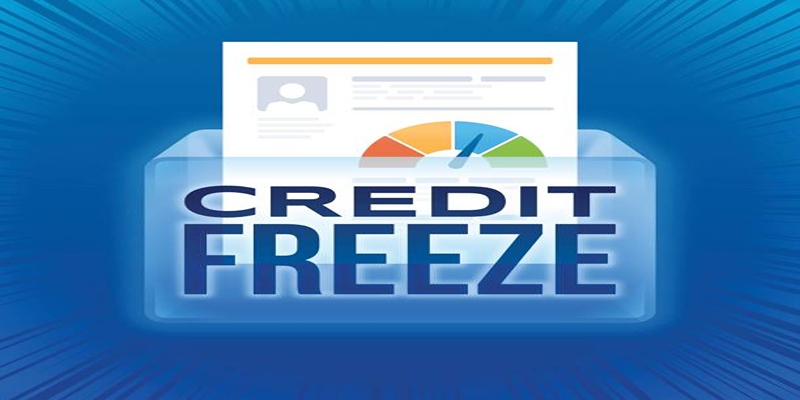Small Business Administration (SBA) loans are a great option for entrepreneurs looking to grow their businesses. These loans are partially guaranteed by the government, making it easier for business owners to secure funding. There are various types of SBA loans available, each designed to meet specific needs, such as starting a business, expanding operations, or managing cash flow. Understanding the types, eligibility requirements, and benefits of SBA loans can help small businesses make informed decisions to support their success.
What Are SBA Loans?

SBA loans are a powerful financing option designed to support small businesses. Backed by the U.S. Small Business Administration (SBA), these loans are issued by approved lenders, with the SBA guaranteeing a portion of the loan. This guarantee reduces the lender’s risk, making it easier for small businesses to secure funding—even if they don’t meet traditional lending requirements.
The attractive features of SBA loans include competitive costs and flexible repayment timelines which make them perfect for multiple types of business requirements. All business needs find reliable solutions through SBA loans which provide working capital as well as equipment financing and expansion funding.
Types of SBA Loans
The Small Business Administration (SBA) offers a variety of loan programs tailored to meet the unique needs of small businesses. Below are the most common types of SBA loans, each designed to support businesses in different ways:
1. SBA 7(a) Loan
The SBA 7(a) loan is the most popular and versatile option, offering up to $5 million in funding. It can be used for a wide range of business needs, such as working capital, purchasing equipment, refinancing debt, or acquiring real estate.
- Loan Amount: Up to $5 million
- Repayment Term: Up to 10 years for working capital; up to 25 years for real estate
- Interest Rates: Prime rate plus a margin
2. SBA 504 Loan
The SBA 504 loan is designed for purchasing fixed assets like real estate or heavy machinery, making it ideal for businesses focused on long-term investments and growth.
- Loan Amount: Up to $5.5 million
- Repayment Term: 10, 20, or 25 years
- Interest Rates: Fixed and typically lower than conventional loans
3. SBA Microloan
The SBA Microloan program provides smaller loans, up to $50,000, to startups and small businesses in underserved communities. It’s an excellent option for businesses needing modest capital to launch or scale.
- Loan Amount: Up to $50,000
- Repayment Term: Up to 6 years
- Interest Rates: Varies by lender
4. SBA Disaster Loan
SBA Disaster Loans are specifically designed to help businesses recover from declared disasters, such as hurricanes, wildfires, or floods. These loans assist in repairing or replacing damaged property, equipment, and inventory.
- Loan Amount: Up to $2 million
- Repayment Term: Up to 30 years
- Interest Rates: As low as 3%
5. SBA Export Loan
The SBA Export Loan program supports businesses involved in international trade. It provides financing to help expand export operations, purchase inventory, or enter new markets.
- Loan Amount: Varies depending on the program
- Repayment Term: Up to 25 years
- Interest Rates: Competitive rates tied to the prime rate
Eligibility Requirements for SBA Loans:
SBA loans are available to a broad range of businesses, but applicants must meet specific eligibility requirements. These criteria ensure that funds are provided to businesses that truly need support and have strong potential for success.
1. Business Size Requirements
To qualify, a business must adhere to the SBA’s size standards, which vary by industry. Typically, a small business is defined as having fewer than 500 employees or annual revenue below a certain threshold.
2. Strong Credit History
Applicants must demonstrate solid creditworthiness, both personally and for the business. Lenders evaluate credit scores, payment history, and financial statements to determine the applicant’s ability to repay the loan.
3. Collateral (When Required)
While collateral isn’t mandatory for all SBA loans, it may be necessary for larger amounts. Acceptable collateral can include business assets, real estate, or personal property, depending on the loan terms.
4. Comprehensive Business Plan
A detailed, well-structured business plan is key to securing an SBA loan. It should clearly outline goals, financial projections, and how the loan will be used to drive business growth.
5. U.S.-Based and For-Profit
Eligible businesses must operate within the United States and function as for-profit entities. Non-profits and those engaged in speculative activities do not qualify.
Advantages of SBA Loans:

SBA loans offer a range of advantages that make them an excellent financing option for small businesses. Here are the key benefits:
1. Competitive Interest Rates
SBA loans come with lower interest rates compared to traditional business loans, making them a cost-effective option.
2. Extended Repayment Terms
With repayment periods spanning 5 to 25 years, SBA loans provide businesses with the flexibility to repay over an extended timeframe.
3. Versatile Use of Funds
Whether you need working capital, want to purchase equipment, acquire real estate, or refinance debt, SBA loans can cover a variety of business needs.
4. Higher Loan Limits
SBA loans provide access to larger financing amounts than many traditional small business loans, giving businesses the resources they need to scale and achieve their goals.
5. Government-Backed Security
With the SBA guaranteeing a portion of the loan, lenders take on less risk. This makes SBA loans more accessible, even for businesses with limited collateral or a less established credit history.
6. Support for Startups and Underserved Communities
SBA programs, such as the SBA Microloan and Community Advantage Loan, are specifically designed to support startups and businesses in underserved areas.
Steps to Apply for an SBA Loan:
Securing an SBA loan can be a straightforward process if you follow these key steps:
- Assess Your Needs: Clearly define why you need the loan and determine the exact amount required to support your business goals.
- Select the Right Loan Program: Research SBA loan options and choose the program that aligns with your specific needs, whether it’s for expansion, equipment, or working capital.
- Organize Your Documentation: Prepare essential paperwork, including financial statements, tax returns, and a comprehensive business plan, to strengthen your application.
- Find an SBA-Approved Lender: Partner with a lender that actively participates in SBA loan programs and is experienced in working with small businesses like yours.
- Submit Your Application: Complete the loan application thoroughly and provide all required documents to avoid delays.
- Wait for Approval: Once submitted, your lender and the SBA will review your application and notify you of their decision.
Conclusion:
SBA loans offer small businesses an excellent opportunity to access affordable and flexible financing. With a variety of loan programs designed to meet diverse needs, competitive interest rates, and extended repayment terms, these loans empower businesses to thrive and expand. By familiarizing themselves with the available loan options, eligibility criteria, and application process, small business owners can make well-informed decisions and leverage this invaluable resource to fuel their growth and success.












